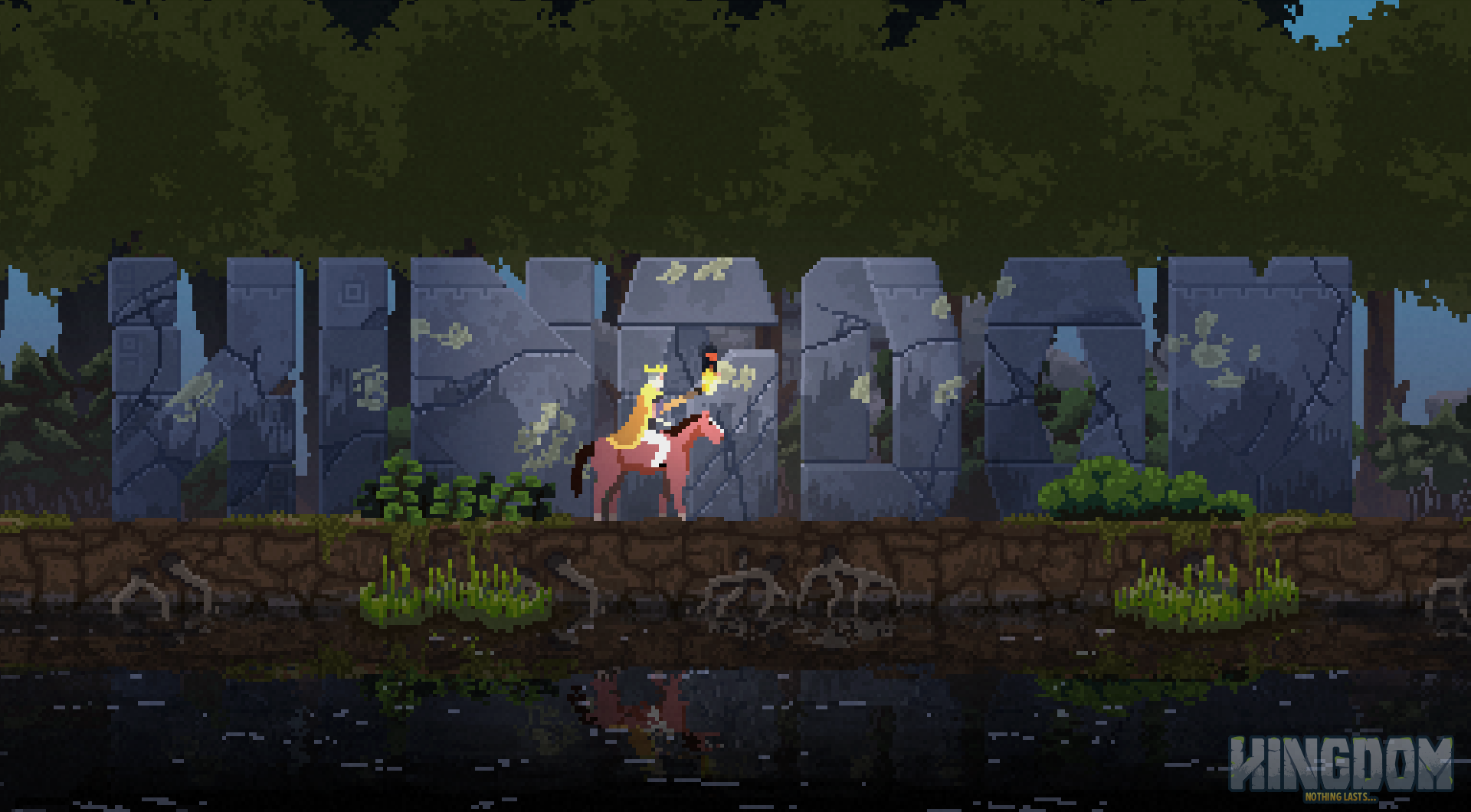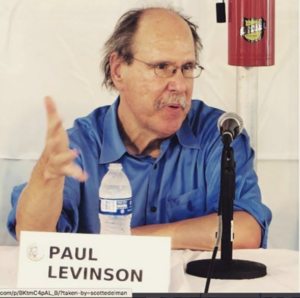Paul Levinson, professor of Communication and Media Studies at Fordham University in New York, is an award-winning science fiction writer of novels including The Silk Code, Borrowed Tides, and The Consciousness Plague. He’s also an online education pioneer, a podcaster, and former president of the SFWA. Levinson recently took the time to answer some questions:
Wes Platt: It’s an understatement to describe you as “well-rounded” – storyteller, songwriter, teacher, media expert. When did you first fall prey to the writing bug, and why?
Paul Levinson: Thanks! I’ve always been the kind of person who, when I really enjoy something as a consumer, and love it so much that it becomes a part of me, I can easily see myself becoming a producer or creator of that, too. I loved everything I read by Isaac Asimov in the 1950s, and it seemed quite natural that someday I would be writing science fiction, too. I felt the same way about nonfiction and rock music. Fortunately I didn’t feel that way about nuclear physics.
WP: You helped teach online classes in the mid-1980s through Connect Ed – years before the internet became mainstream and really made it practical to reach a wide range of students. How does it feel having pioneered that technology? What did you learn then that you apply now?
PL: I’ve always valued time – that is, I think we don’t have enough of it, to do the things we want to do. It always occurred to me, as a student and then a professor, that the time it took to travel to a class was usually a waste of time. It would be much better if I could just teleport into that class. In effect, that was the foundation of Connected Education – Connect Ed for short – which my wife and I founded. We had students from more than 40 states in the U.S and 20 countries around the world. It didn’t matter where they and the professors were located. I apply that lesson all the time now – every time I write an idea, or even a story or article, on my smartphone. I can not only tweet but put up a blog post, publish a book on Amazon, any time I want, wherever I may be. That’s a boon to any creative spirit.
WP: It feels like our media diet is hyper-saturated, especially thanks to our smartphones keeping us connected to apps like Twitter, Facebook, and even traditional news outlets such as the Associated Press. Where do you see this going from a technological evolution standpoint? Is a media singularity imminent?
PL: I don’t think we’re hyper-saturated with media, or suffering from information overload. We’re suffering, to the contrary, from information underload, or not having the best navigational tools to get the information we need, to avoid fake news, etc. Our social media are sources of freedom and accuracy, if we know how to use them. As for media singularity, I don’t see it as a problem – our media and AIs are not even remotely like human intelligence. We control our media and not vice versa. In the future, I expect we’ll have even better access to the media than we have now. We may have chips embedded in our earlobes or wherever, which would free us from having to carry our phones. We’ll be able to shut them off, just like our phones, whenever we wanted to be disconnected. In the 20th and now the 21st centuries, our media have increasingly allowed more people from more places to get their ideas into the mix. That’s the future of our species, both on this planet and beyond into the universe.
WP: What was it like working with Wolfman Jack during your years as a music producer?
PL: I had more fun working with Murray the K, because he was someone I had enjoyed as a DJ since I first heard him on WINS Radio in New York when I was a kid in the late 1950s. But it was great working with the Wolfman, too. What I did for both was put together sets of songs – Murray called them “segues” – for example, “I Fought the Law,” “Indiana Wants Me,” and “Gotta Get a Message to You” as a “law and order” set, and sometimes much longer series of songs that told a story. I also wrote and recorded a song for Murray – “Murray the K’s Back in Town” – which you can hear any time now on Spotify. And the second and third articles I ever had published – which was back in the 1970s – were about Murray (2nd article) and Wolfman (3rd article). The first article was a defense of Paul McCartney, against a dyspeptic critic.
WP: Who are some storytellers that influenced you early on as a writer?
PL: Isaac Asimov, Isaac Asimov, and Isaac Asimov, first and foremost and always. I thought his Foundation trilogy was the best fiction of any kind I ever read, and still do. Asimov’s robot stories are still unparalleled in terms of their logic and philosophy of mind and life. And his The End of Eternity is the still best time travel novel I’ve ever encountered. In addition to his ideas, I always found the sheer clarity of his writing, not to mention its abundance, to be an inspiration.
WP: What do you get out of writing – besides paychecks and accolades? Why do you do it?
PL: I find writing as satisfying as talking, and I love to do both. There’s something especially magical, though, in putting your ideas into written words, and seeing them sail off into the world at large, to be received, collide with, sooth, coax, set on fire, inspire, whomever those words may touch. I write every day, all the time, and I can no more easily go with a day without writing than I would without eating or even breathing. Writing is the way I connect to the cosmos. In its own way, it is as profound as having children and grandchildren, which is wonderful and magical in a different but superbly related way.
WP: How did you get into podcasting and what have you enjoyed most about that kind of outlet?
PL: Podcasting for me is the verbal equivalent of writing. It serves exactly the same purpose in my life and work. I’m also a singer and songwriter – you can listen to dozens of my songs on Spotify – and podcasting is also for me the talking equivalent of singing. I don’t prepare too much for my podcast. I just start talking about whatever subject I want to talk to the world about. I always wish that I had more time to podcast – but usually writing takes precedence.
WP: How do you define success as an author?
PL: I see many kinds of interrelated indications of success for a writer. Even moving one reader – who lets you know how much she or he enjoyed your novel – is a very meaningful kind of success. But, sure, sales are important. Up until about 10 years ago, having a publisher believe in your work enough to publish it was crucial, too. I’m proud of the novels I’ve had published by Tor, and the stories in Analog, Amazing Stories, Buzzy Mag, etc. But now it’s so easy to publish what you want on Amazon that an author can reach readers directly. Other important kind of success for me: having my work become the basis of a movie or a TV series. The Chronology Protection Case, a short movie made by Jay Kensinger (now on Amazon Prime), based on my novelette in Analog, brings me great pleasure, and I hope to see more of this done with my work. We’re shopping around a pilot for a TV series, The Genesis Virus, a new Phil D’Amato narrative written by me, J. Charles Sterin, and my wife Bettina Vozick. (D’Amato is the protagonist in “The Chronology Protection Case,” and in my Locus-award-winning first novel, The Silk Code, etc.) I also have a script for one of my best-known novels, The Plot to Save Socrates.
WP: What are some of your fondest memories about serving as a past president of the SFWA? What do you think of where the organization is now (adding video game writing, for example)? And where do you think it may go in the future?
PL: I succeeded Rob Sawyer as President, and it gave me great pleasure to implement some of the great ideas he brought forward and worked for, such as a Nebula Award for Best Dramatic Script. On a personal level, it was extraordinary meeting and having dinner with Daniel Keyes – with his wife and my family – when I brought him to New York to give him the Author Emeritus Award in 2000. Politically, I enjoyed going down to Washington and being interviewed by the FTC about why SFWA thought a Barnes & Nobles / Ingram merger would not be in the public’s interest. I think SFWA’s in great shape now, with an innovative and hardworking administration which is working harder than ever for writers, with book events, story bundles, etc. Indeed, I see more energy and vitality in the organization now than ever before, and I enthusiastically approve of important steps into the future that SFWA has taken, recognizing the place at the table for self-published authors and video-game writers. I expect SFWA to continue to be a leader in safeguarding and promoting author’s rights, recognizing the advent of new kinds of publishing – such as on the Amazon Kindle – etc.
WP: Share some current authors whose work you’ve enjoyed (assuming you’ve had some spare time to read between all your other projects).
PL: I’ll give you three: Three Laws Lethal by David Walton – not yet published, a brilliant thriller about driverless cars and the profound, life-and-death philosophic questions they raise. The Mindtraveler by Bonnie Rozanski (2015) – one of the best time-travel novels I’ve read in years – actually, one of the best time-travel novels, period. Red Moon by David S. Michaels and Daniel Brenton – I’ve always wondered why the Soviet space effort fell apart in the 1960s, and this novel provides a breathtaking science fictional account. And here’s an Honorable Mention: Prophecies of the New World by Royce Sears (2016) – a rich, anthropological tapestry, encompassing everything from Native Americans to outer-space aliens.
Thanks so much to Paul for sharing his thoughts and experiences! I’m always interested in hearing from other writers and their perspectives, so feel free to reach out to me via email at jointhesaga@gmail.com.




